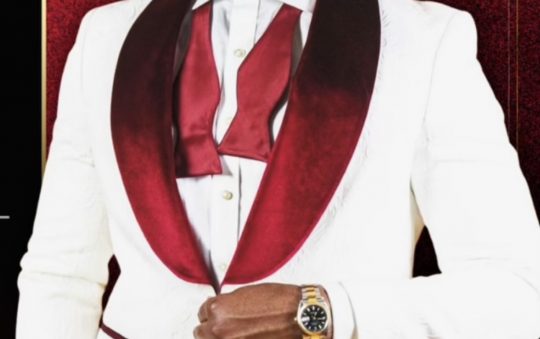
LaLette Littlejohn is a well-respected film and television makeup professional who has created cosmetic artistry for films like “A Wrinkle in Time,” “Marshall,” “Annie,” “Django Unchained,” “Dreamgirls,” “BAPS,” and “The Five Heartbeats.”
Littlejohn has also served as the makeup artist head on TV shows such as “Reasonable Doubt,” “Queen Sugar,” “Being Mary Jane,” “The Game,” “Soul Food,” and “The Book of Negroes.”
Although she wasn’t allowed to wear make up at school as a girl, Littlejohn says she always knew makeup was what she wanted to do for a career.
“I would play around with it [makeup] — put it on my mom, sisters, friends, family, said Littlejohn. “I read a lot about it. I had magazines sent to me, and little [makeup] testers, and I would try different things.”
Related Stories
Kelli Scates Opens Space for Black Creatives to Flourish
Marla Gibbs, Award-winning Actress and Community Leader, Honored by Bakewell Media and L.A. Sentinel
Even though she studied communications in college, Littlejohn says it was not the right fit for her, makeup was her true passion.
Now after a thirty-year career in makeup, Littlejohn remembers gearing her early career towards television, and two of the first TV shows she worked on were “The Parenthood” and “The Jamie Foxx Show.”
Littlejohn says as a makeup department head, she now runs the show, and she explained how the hierarchy works in the makeup room, “Anything the director wants, I have to present that to them. People working up underneath me are considered a key [makeup artist], then you have the workers.”
Workers on a film or television project may include makeup artists, special effects makeup artists, and makeup assistants.
Littlejohn says that many times makeup and hair may be listed as the same department, however she prefers when the two are kept separate. She feels it gives each area more autonomy and more creative license in their respective roles.
“They [hairstylist team] want their voice heard, too,” said Littlejohn. “[However,] we listen to one another, and we’re working on the same show, we have to agree at some point.”
For aspiring film and television makeup artists, Littlejohn says, first and foremost it is important to be knowledgeable about entertainment. She also believes makeup schools are important for beginning makeup artists, because they teach the technical aspects of the craft like prosthetics.
“You can learn some of the hard stuff when you start working, but you should also know a little about prosthetics [makeup], and that’s what school can be good for,” said Littlejohn.
Littlejohn says makeup artists can learn the formulaic compositions of makeups, and various other products makeup artists use by attending these schools, and this knowledge can help prevent any potential threats to the actor’s skin.
In addition to makeup schools, Littlejohn believes networking is essential to the survival of novice makeup artists. “You’re really never going to know when you’re going to be around a person who can help you,” said Littlejohn.
“You can attend parties or different events that have those people [movers and shakers] around them. You have to surround yourself with people who can help you.”
She says interning is also a good way to get a foot in the door, and sometimes that work might require working for free or for very little pay.
“I did a lot of free jobs. Maybe they couldn’t afford to pay me my full rate at that time… that was great. They thought about me again…when they grew, I grew,” said Littlejohn. “You have to look at it as a growing experience.”
She also says it is important to be friendly with the actors, but not too familiar. Littlejohn finds it important to always keep the talent comfortable to build trust.
“You want to be their friend. You don’t want them not to like you. You don’t want them not to trust you, you want them to learn to trust you,” said Littlejohn.







